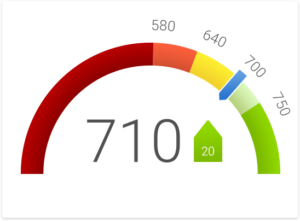 Today’s top story: How to save money by thinking like a college student. Also in the news: What an average retirement costs, how soon should you worry about your credit, and how to budget for your kids’ summer vacation.
Today’s top story: How to save money by thinking like a college student. Also in the news: What an average retirement costs, how soon should you worry about your credit, and how to budget for your kids’ summer vacation.
Save Money by Thinking Like a College Student
You can skip the ramen.
Let’s Get Real: What an Average Retirement Costs
Breaking down the numbers.
Ask Brianna: I’m 18. Should I Worry About My Credit Yet?
It’s never too soon.
How to Budget for Your Kids’ Summer Vacation
Summer can get very pricey.
 Today’s top story: 3 things you can buy for less on Memorial Day. Also in the news: Why declining rental car insurance abroad is risky, hidden hotel fees that could spoil your stay, and 15 money-saving tips for big families.
Today’s top story: 3 things you can buy for less on Memorial Day. Also in the news: Why declining rental car insurance abroad is risky, hidden hotel fees that could spoil your stay, and 15 money-saving tips for big families.  Today’s top story: 6 ways to build your credit in less than an hour. Also in the news: Investing in international stocks, why you should invest in the stock market even if it scares you, and where to find the best Memorial Day sales.
Today’s top story: 6 ways to build your credit in less than an hour. Also in the news: Investing in international stocks, why you should invest in the stock market even if it scares you, and where to find the best Memorial Day sales. Today’s top story: What the Dodd-Frank rollback means for consumers. Also in the news: Memorial Day travel tips to remember, a day in the life of a portfolio manager, and 4 in 10 Americans can’t fund a $400 emergency expense.
Today’s top story: What the Dodd-Frank rollback means for consumers. Also in the news: Memorial Day travel tips to remember, a day in the life of a portfolio manager, and 4 in 10 Americans can’t fund a $400 emergency expense.